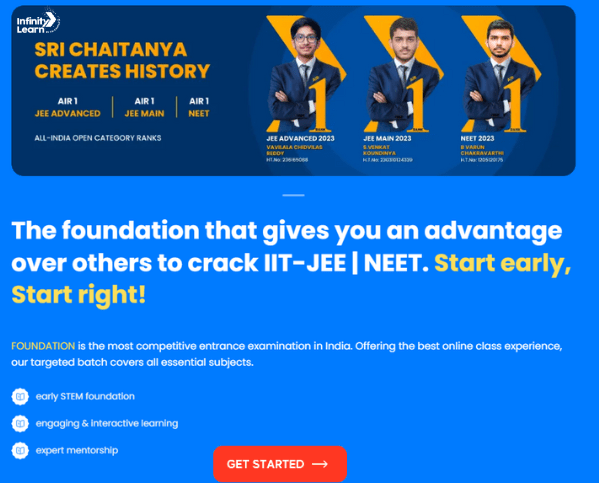Table of Contents
The Class 8 Civics Chapter 8 – Confronting Marginalisation covers the concept of marginalisation and its effects on the lives of people. Infinity Learn has provided a PDF of the NCERT Solutions for Class 8 Civics Chapter 8 – Confronting Marginalisation. Students can use this to prepare and excel in their board exams. Also, a free pdf download of the NCERT Solutions for Class 8 Civics Chapter 8 – Confronting Marginalisation is provided here.
What would it be like to be denied one’s rights? Lower castes, minorities, women, and other marginalized groups in India have argued for equal rights with other citizens in this democratic republic on multiple occasions. A small number of these marginalized communities appeal to the Indian Constitution for redress.
Learn about some of the ways that organizations and individuals are challenging current inequalities in Chapter 8 of CBSE Class 8 Civics. NCERT Civics Solutions for Class 8 Confronting Marginalisation, Chapter 8, explains the answers to the activities in the Civics book – Political and Social life.
The solutions to this chapter have been meticulously prepared. The NCERT Solutions pdf can be downloaded from the links provided. Experts at INFINITY learn provide NCERT Solutions to these exercises that are simple to grasp, useful for school test preparation, and correct.

Class 8 HOTS Course
The Class 8 HOTS Course enhances critical thinking and problem-solving skills through engaging activities and advanced learning techniques, ensuring academic excellence.
NCERT Solutions for Class 8 Social Science Civics Chapter 8 Confronting Marginalisation
Ques 1. List two Fundamental Rights in the Constitution that Dalits can draw upon to insist that they be treated with dignity and as equals. Re-read the Fundamental Rights listed on page 14 to help you answer this question.
Ans. The two Fundamental Rights in the Constitution that Dalits can draw upon to insist that they be treated with dignity and as equals are:
- Right to Equality
- Right against Exploitation.
Ques 2. Re-read the story on Rathnam as well as the provisions of the 1989 Scheduled Castes and Scheduled Tribes (Prevention of Atrocities) Act. Now list one reason why you think he used this law to file a complaint.
Ans.
- The 1989 Act was in response to the demands made by Dalits and others. The Government was to take them seriously as per demand. The Government has to protect them against the ill treatment and humiliation faced by dalits and tribal groups in every day life.
- Ratnam used the law to file a complaint because he was tortured and punished by burning his hut and was forced to leave the village along with his mother and other members of his family.
- He filed the complaint against the domination and violence of the powerful castes of the village.
- This law provides protection to Dalits and Adivasis. Therefore, Rathnam sought the support of this law.
Ques 3. Why do Adivasi activists, including C.K. Janu, believe that Adivasis can also use this 1989 Act to fight against dispossession? Is there anything specific in the provisions of the Act that allows her to believe this?
Ans. The Adivasi activists including C.K.Janu believe that Adivasis can also use this 1989 Act to fight possession because this Act guarantees the tribals not to be dispossessed from the land and resources forcibly. Their land cannot be sold or bought by non-tribal people. The constitution also guarantees the right of the tribal people to repossess their land.
Ques 4. The poems and the song in this Unit allow you to see the range of ways in which individuals and communities express their opinions, their anger and their sorrow. In class, do the following two exercises:
(a) Bring to class a poem that discusses a social issue. Share this with your classmates. Work in small groups with two or more poems to discuss their meaning as well as what the poet is trying to communicate.
(b)Identify a marginalised community in your locality. Write a poem, or song, or draw a poster etc to express your feelings as a member of this community.
Ans. Self Work
NCERT Solutions for Class 8 Social Science Civics Chapter 8 Confronting Marginalisation
We will learn about some of the methods that people and groups address existing inequities in this chapter. Adivasis, Dalits, Muslims, women, and other marginalized groups claim that just because they are citizens of democratic democracy, they have equal rights that must be recognized. Many of them look to the Constitution for answers to their problems. We’ll look at how rights are turned into laws in order to safeguard vulnerable populations from further exploitation. We’ll also look at the government’s efforts to design rules that help these groups gain access to development.
The following topics will be discussed in-depth in this chapter:
- Invoking the Bill of Rights
- Laws for the Disenfranchised
- Advocating for Dalits and Adivasis’Rights
- The Scheduled Castes and Scheduled Tribes (Prevention of Atrocities) Act of 1989 was enacted to protect Scheduled Castes and Scheduled Tribes against atrocities.
- Adivasi Demands and the Adivasi Act of 1989
Class 8 Social Science students will benefit from reading Social and Political Life – III. Apart from this chapter, the websites contain the complete set of NCERT Solutions for Class 8 Social Science. The solution module is created by subject matter experts with extensive knowledge of the concepts. The NCERT Solutions pdf can be downloaded from the links provided.
Frequently Asked Questions (FAQs)
What are some of the key points covered in Chapter 8 of NCERT Solutions for Class 8 Civics?
The following are some of the main themes covered in Chapter 8 of NCERT Solutions for Class 8 Civics: Invoking the Bill of Rights Laws for the Disenfranchised Advocating for Dalits and Adivasis’ Rights The Scheduled Castes and Scheduled Tribes (Prevention of Atrocities) Act of 1989 was enacted to protect Scheduled Castes and Scheduled Tribes against atrocities. Adivasi Demands and the Adivasi Act of 1989
Is it necessary to study the NCERT Solutions for Class 8 Civics Chapter 8 for the final exam?
The NCERT Solutions for Class 8 Civics Chapter 8 were developed to help students understand how to correctly answer various textbook problems that may arise on the test. Students can increase their final exam preparations and get good scores by referring to these solutions. For each question, extensive and complex explanations are provided to assist students in achieving the highest academic score possible. Furthermore, students have free access to INFINITY learn’S solutions at any time and from any location.
What are the advantages of using Infinity learn NCERT Solutions for Civics Chapter 8 in Class 8?
The following are the main advantages of using INFINITY learns NCERT Solutions for Class 8 Civics Chapter 8: The solutions are written in plain English to help students prepare for their exams. Students can readily and quickly link concept-focused answers because they are written in an organized manner Solutions are free to download in both online text and PDF format.







